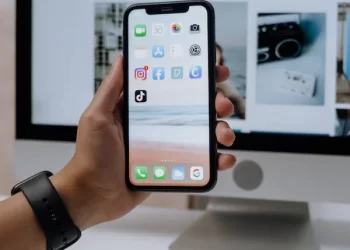Today made it four years since he completed his college degree, but still has no CV to show for it. Every attempt by his dad to persuade him to apply for jobs he got through his friend proved abortive. Whenever he is asked what he is doing with his time, he quickly shouts, “I am learning a skill.” But his dad won’t have it – how long does it take to learn a new skill, he wondered.
Learning new skills has become more critical in today’s fast-paced world. Whether you’re looking to advance your career, pursue a new hobby, or simply keep up with the latest trends, acquiring new skills is crucial to personal and professional development. But how long does it take to learn a new skill?
The answer depends on various factors, including the skill’s complexity, prior knowledge and experience, learning style and preferences, the time and resources available to you, and your motivation and dedication.
In this post, we’ll explore these factors and provide examples of how long it takes to learn different skills. We’ll also offer some tips for speeding up the learning process and achieving your goals more quickly.
Factors that affect how long it takes to learn a new skill
The Complexity of the Skill
One of the most critical factors that affect the time it takes to learn a new skill is the complexity of the skill itself. Some skills are relatively simple and can be learned quickly with just a few hours of practice, while others are more complex and require months or even years of dedicated effort to master. For example, learning to use a new software program may only take a few days or weeks, while learning a new language can take months or even years.
Prior Knowledge and Experience
Another critical factor affecting the time it takes to learn a new skill is prior knowledge and experience. If you already have some experience with a particular skill, it will likely take you less time to learn it than someone starting from scratch. For example, if you already know how to write a blog post, it will be easier to learn how to write a press release than someone who has never played an instrument before.
Learning Style and Preferences
Your learning style and preferences can also significantly impact how long it takes to learn a new skill. Some people learn best through hands-on practice and experimentation, while others prefer to read and study before trying something out. Some people like to learn in a group setting, while others prefer to learn independently. By understanding your learning style and preferences, you can tailor your approach to learning new skills in the best way for you.
Time and Resources Available
The time and resources available to learn a new skill can also be crucial in how quickly you can learn it. If you have a lot of free time and can devote several hours a day to practicing a new skill, you may be able to understand it more quickly than someone who only has a few minutes a day to spare. Similarly, if you have access to resources like books, videos, or online courses, you may be able to learn a new skill more quickly than someone who is relying solely on trial and error.
Motivation and Dedication
Finally, your motivation and dedication can be a significant factors in how long it takes to learn a new skill. If you are highly motivated and dedicated to learning a new skill, you may be able to learn it more quickly than someone who is only casually interested. Similarly, if you are willing to put in the time and effort required to master a new skill, you may be able to achieve your goals more quickly than someone who is only putting in minimal effort.
Different Types of Skills and Their Learning Curves
Now that we’ve looked at some factors that can affect the time it takes to learn a new skill let’s explore some different types of skills and their learning curves.
Cognitive Skills
Cognitive skills involve mental processes such as learning, memory, and problem-solving. Examples of cognitive skills include language learning, programming, and critical thinking. The time it takes to learn a mental skill will depend on the complexity of the skill, your prior knowledge and experience, and your learning style and preferences.
Language learning, for example, can take a few months to several years to achieve fluency, depending on the language and your starting level. On the other hand, learning a programming language can take anywhere from a few months to several years, depending on the complexity of the language and your prior programming experience. However, critical thinking is a skill that can be developed over time with practice and experience.
Physical Skills
Physical skills involve using your body, such as sports, dancing, and playing a musical instrument. Learning physical skills often consists of a combination of mental and physical processes, as you need to understand the technique and execute it with your body.
The time it takes to learn a physical skill will depend on the complexity of the skill, your prior knowledge and experience, and your physical ability. For example, learning how to play a simple tune on a guitar may only take a few weeks or months of practice, while learning how to play a complex piece may take several years of dedicated effort.
Similarly, learning a sport like basketball or a soccer can take a few months to several years to develop the necessary skills and technique. Dancing is another physical skill that can take a long time to learn, with some dance styles requiring several years of dedicated practice to master.
Creative Skills
Creative skills involve expressing yourself through art, music, writing, or other creative mediums. Examples of creative skills include writing, drawing, painting, and playing music.
The time it takes to learn a creative skill will depend on the complexity of the skill, your prior knowledge and experience, and your creativity and imagination. For example, learning to draw basic shapes and objects may only take a few weeks of practice, while drawing portraits or landscapes may take several months or even years.
Similarly, writing effectively may only take a few months of practice, while learning how to write creatively and expressively may take several years of dedicated effort. Lastly, playing music is another creative skill that can take a long time to learn, with some musicians dedicating their entire lives to mastering their instrument and craft.
Social Skills
Social skills involve interacting with others, such as public speaking, networking, and conflict resolution. Learning social skills often involves a combination of cognitive and emotional processes, as you need to understand how to communicate effectively while also being aware of the emotions and feelings of others.
The time it takes to learn a social skill will depend on the complexity of the skill, your prior knowledge and experience, and your social and emotional intelligence. For example, learning to give a basic presentation may only take a few weeks of practice, while giving a compelling and persuasive speech may take several months or even years of dedicated effort.
Similarly, learning to network effectively may only take a few months of practice, while building deep and meaningful connections with others may take several years of dedicated effort. Also, conflict resolution is another social skill that can take a long time to learn. Some people dedicate their careers to mastering the art of resolving conflicts and creating win-win solutions.
Tips for Speeding up the Learning Process
While the time it takes to learn a new skill will depend on various factors, some tips and strategies can help you speed up the learning process and achieve your goals more quickly. Here are a few tips to consider:
Set clear goals and break them down into manageable steps
One of the most important things you can do when learning a new skill is to set clear goals for what you want to achieve and break them down into manageable steps. This can help you stay motivated and focused and also help you track your progress along the way. For example, if you want to learn a new programming language, you could break it down into smaller goals, such as learning basic syntax, writing simple programs, and building more complex projects.
Find a mentor or teacher.
A mentor or teacher can be beneficial when learning a new skill. They can provide guidance, support, and feedback and help you stay accountable and motivated. If possible, try to find someone who has already mastered the skill you want to learn and ask for their advice and guidance. For instance. I can teach you how to write and get paid if you click on the Whatsapp icon on this page.
Practice regularly
Practice is vital when learning a new skill. The more you practice, the more you will reinforce what you have learned, and the faster you will progress. Try to practice regularly, even if it’s just for a few minutes a day, and aim to make it a habit.
Get feedback
Getting feedback from others can be incredibly helpful when learning a new skill. It can help you identify areas to improve and provide motivation and encouragement. Try to seek feedback from others, whether from a mentor, teacher, or peers.
Embrace failure
Learning a new skill can be challenging, and it’s important to remember that failure is a natural part of the learning process. Instead of getting discouraged by failures, embrace them as opportunities to learn and grow. Also, keep pushing yourself outside your comfort zone, and remember that every mistake is a chance to improve.
Available free resources to learn a new skill
Learning a new skill can be an exciting and fulfilling experience, but it can also be expensive. Fortunately, many free resources are available online to help you learn new skills without breaking the bank. Let’s explore some of the best free resources for learning new skills beyond just learning how long does it takes to learn a new skill.
Online Courses
Many websites offer free online courses on a wide range of topics. Some popular platforms include Coursera, edX, and Khan Academy. Experts in their fields teach these courses, and can be accessed from anywhere with an internet connection.
YouTube
YouTube is an excellent resource for learning new skills. There are countless videos on various topics, from cooking to programming. Many experts and professionals use YouTube to share their knowledge and provide tutorials, making it an excellent source of free education.
Open Educational Resources
Open educational resources (OERs) are educational materials that are freely available for anyone to use, remix, and share. These can include textbooks, videos, and other types of content. Some popular OER websites include OER Commons and OpenStax.
Podcasts
Podcasts are an excellent way to learn new skills while on the go. Many podcasts focus on specific topics like business, marketing, or technology. Some popular podcasts include the TED Radio Hour, The Tim Ferriss Show, and the Freakonomics Radio podcast.
Webinars
Many experts and professionals offer free webinars on a wide range of topics. These webinars can be a great way to learn from experts in a specific field, and many of them offer the opportunity to ask questions and interact with the presenter. Some popular webinar platforms include Zoom and Webex.
Online Forums and Communities
Online forums and communities can be excellent resources for learning new skills. Many online communities focus on specific topics, such as coding or photography. These communities can be great places to ask questions, share knowledge, and connect with like-minded individuals.
Libraries
Libraries are an often-overlooked resource for learning new skills. Many libraries offer free access to books, magazines, and other educational materials. Some libraries even offer access to online courses and other digital resources.
Free online resources to learn digital skills
- Codecademy is a popular online learning platform that offers coding and web development courses. They offer classes in various programming languages, including Python, JavaScript, and HTML/CSS. Codecademy’s courses are interactive and hands-on, allowing you to practice your skills as you learn.
- Google Digital Garage is a free online training platform offering digital marketing, data and tech, and career development courses. They offer courses in various topics, including search engine optimization (SEO), social media marketing, and analytics. Google Digital Garage’s systems are designed to be accessible to everyone, regardless of their skill level.
- Alison is a free online learning platform that offers courses in various topics, including technology, business, and health. They offer classes in various digital skills, including web development, digital marketing, and data analysis. Alison’s courses are self-paced and can be completed at your own pace.
- Udemy is a popular online learning platform offering courses on various topics, including digital skills. They offer courses in web development, digital marketing, data analysis, and more. Experts in their fields teach Udemy’s courses which can be accessed from anywhere with an internet connection.
- HubSpot Academy is a free online learning platform that offers courses in inbound marketing, sales, and customer service. They offer courses in various digital skills, including SEO, email marketing, and social media marketing. HubSpot Academy’s courses are designed to help you improve your digital skills and advance your career.
- W3Schools is a free online learning platform that offers courses in web development. They offer courses in various web development technologies, including HTML, CSS, JavaScript, and PHP. W3Schools’ courses are interactive and hands-on, allowing you to practice your skills as you learn.
- LinkedIn Learning is a popular online platform offering courses on various topics, including digital skills. They offer courses in web development, digital marketing, data analysis, and more. Experts in their fields teach LinkedIn Learning courses which can be accessed from anywhere with an internet connection.
Conclusion
How long does it take to learn a new skill depends on a variety of factors, including the complexity of the skill, your prior knowledge and experience, and your learning style and preferences. While it’s impossible to predict exactly how long it will take to learn a new skill, staying motivated, setting clear goals, and practicing regularly is important.
Learning a new skill can be a rewarding and fulfilling experience, and the more you invest in your personal growth and development, the more you will reap the benefits in all areas of your life. So go out there and start learning something new today!











Hey there! Your blog is an incredible resource for anyone interested in metaads . Your interviews are incredibly informative and have assisted us in our own efforts to succeed in the industry . We especially loved your recent posts about sports-news . Keep up the fantastic work and we look forward to reading more from you soon!
Thanks again this was a great read